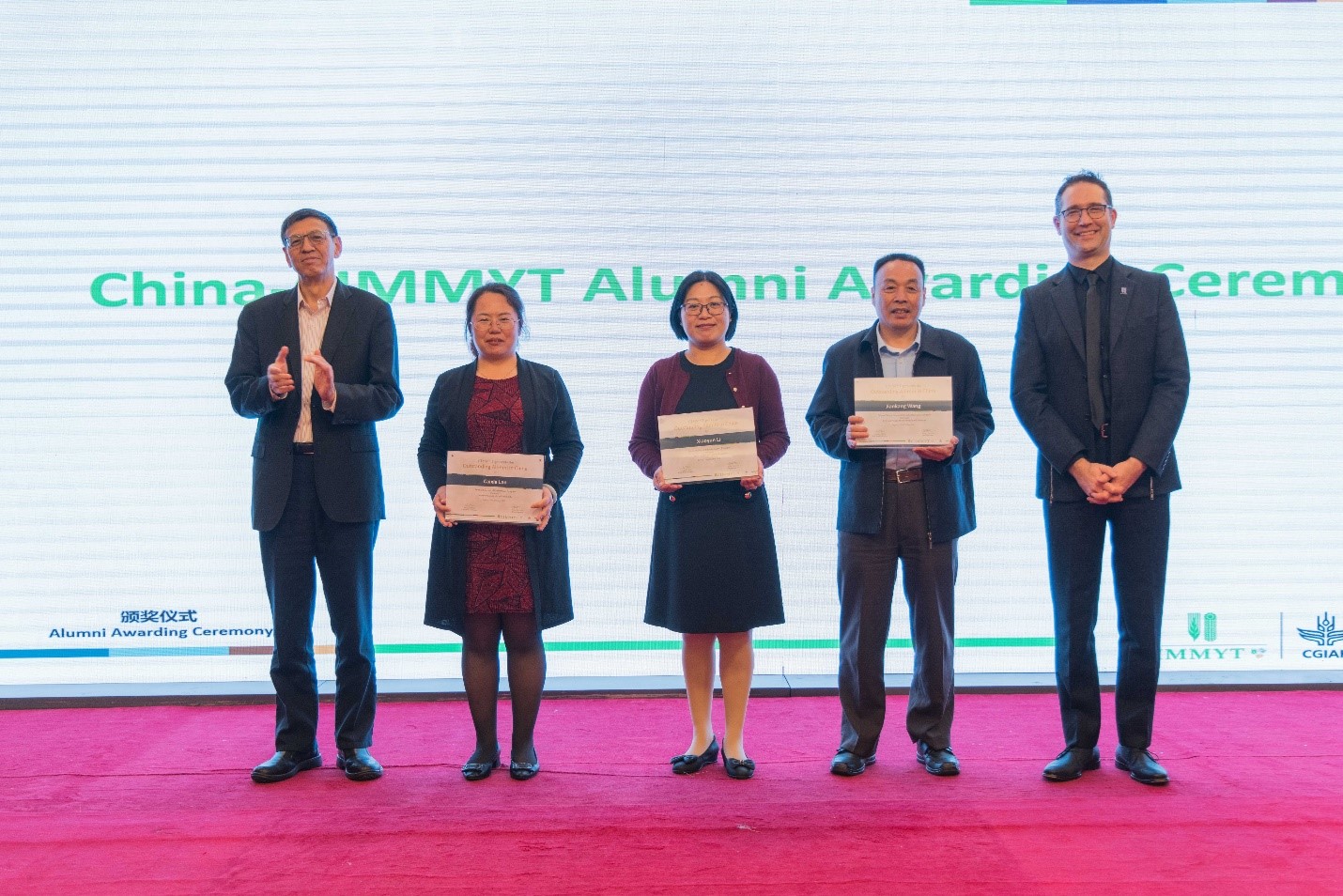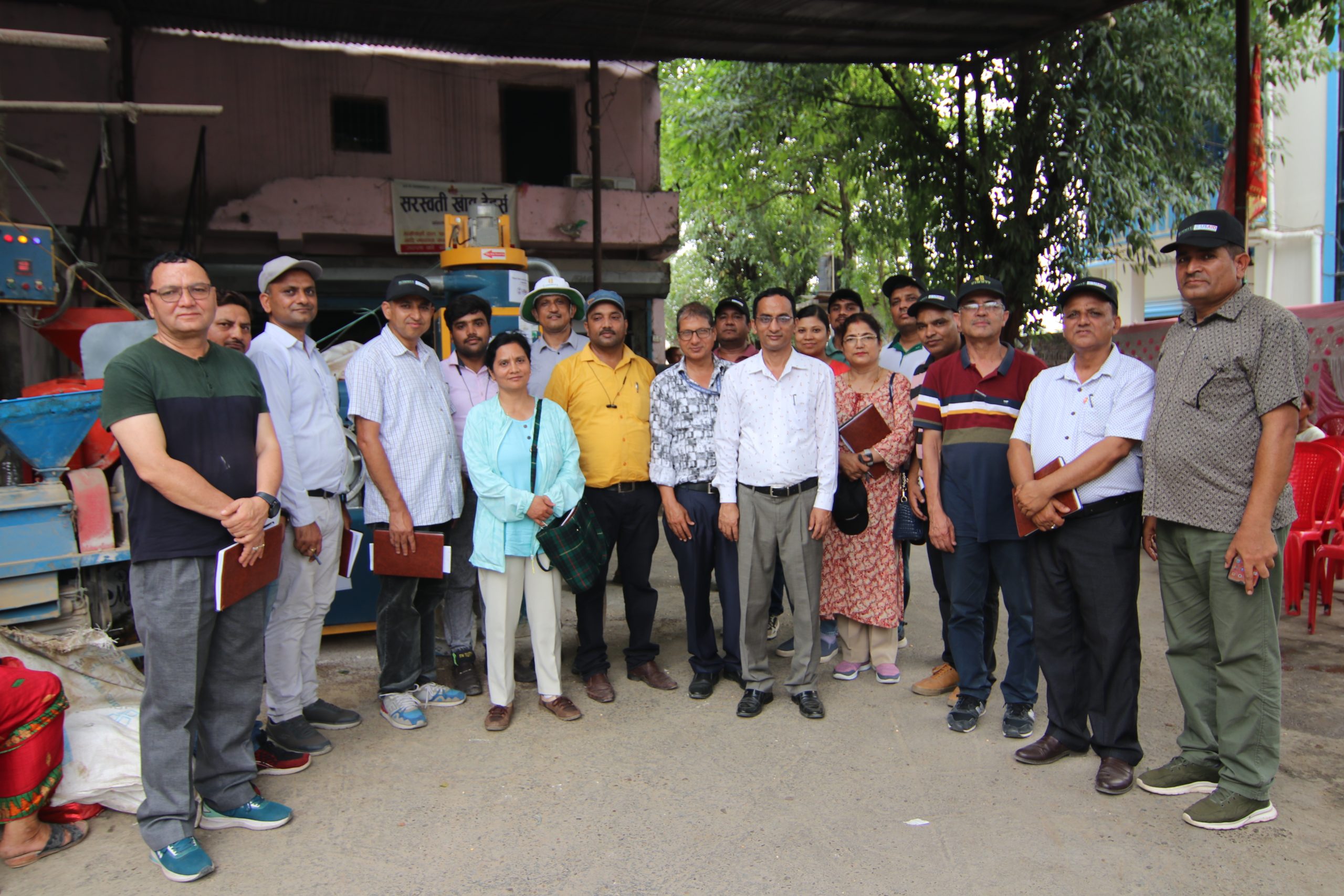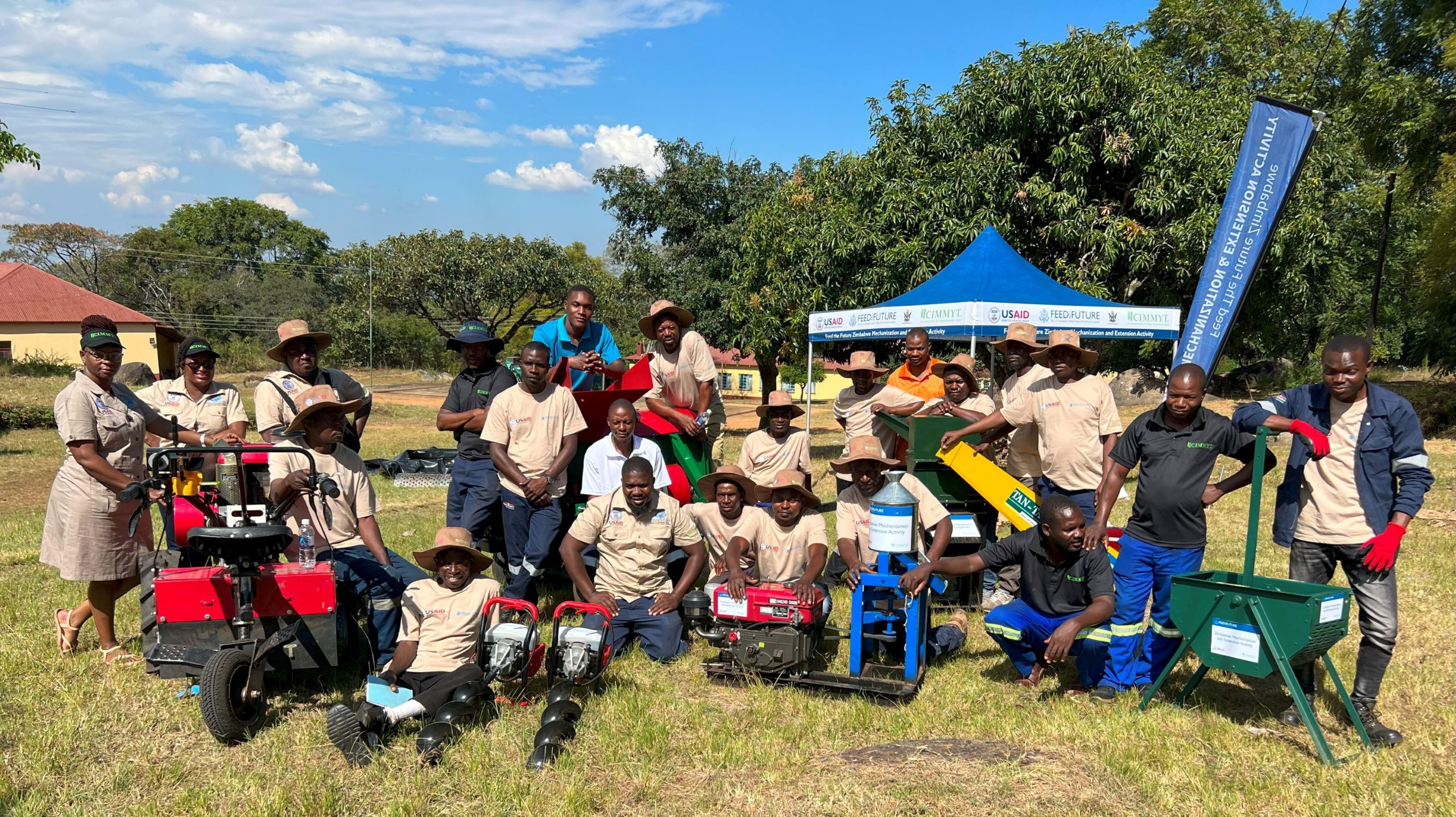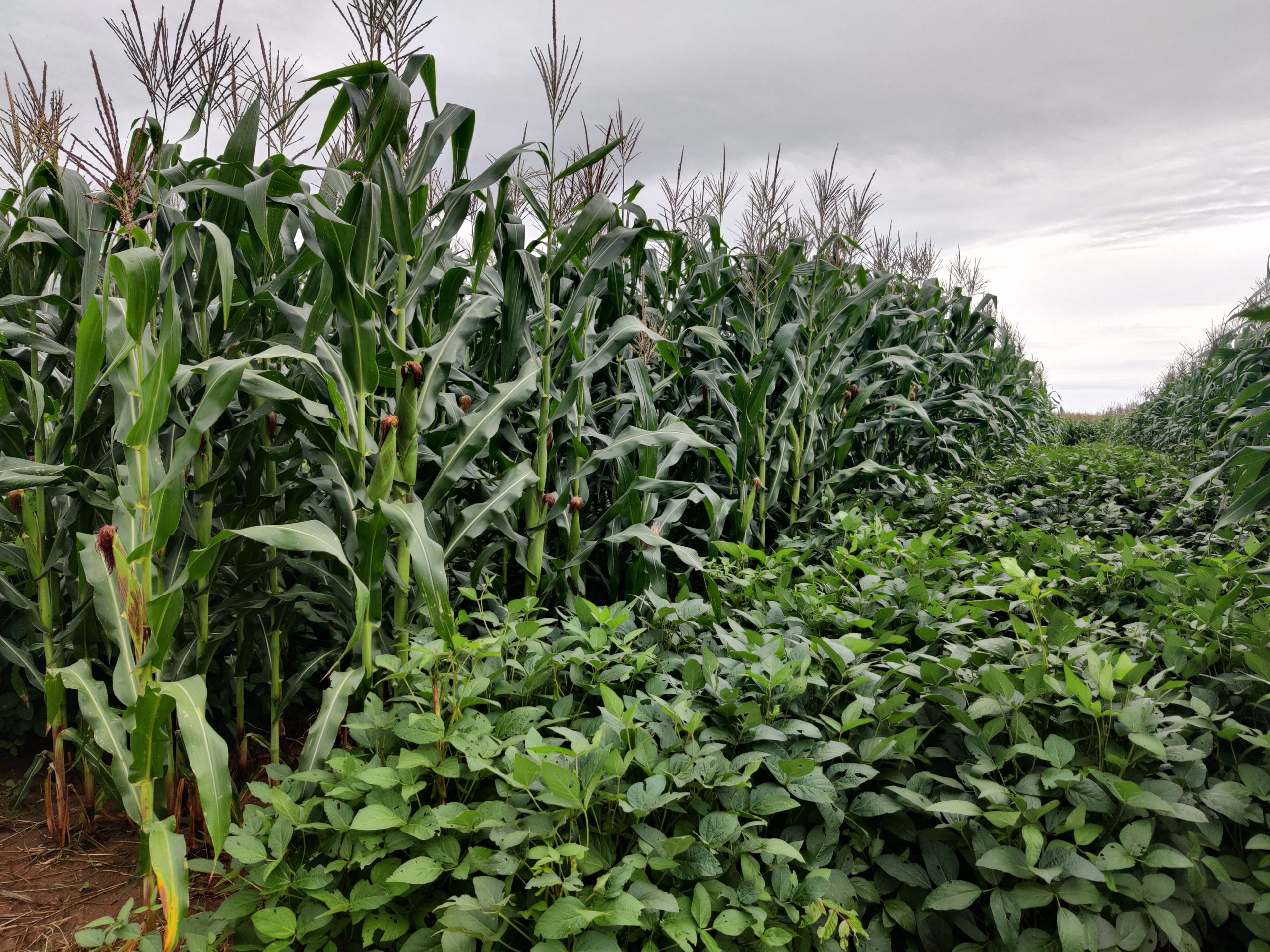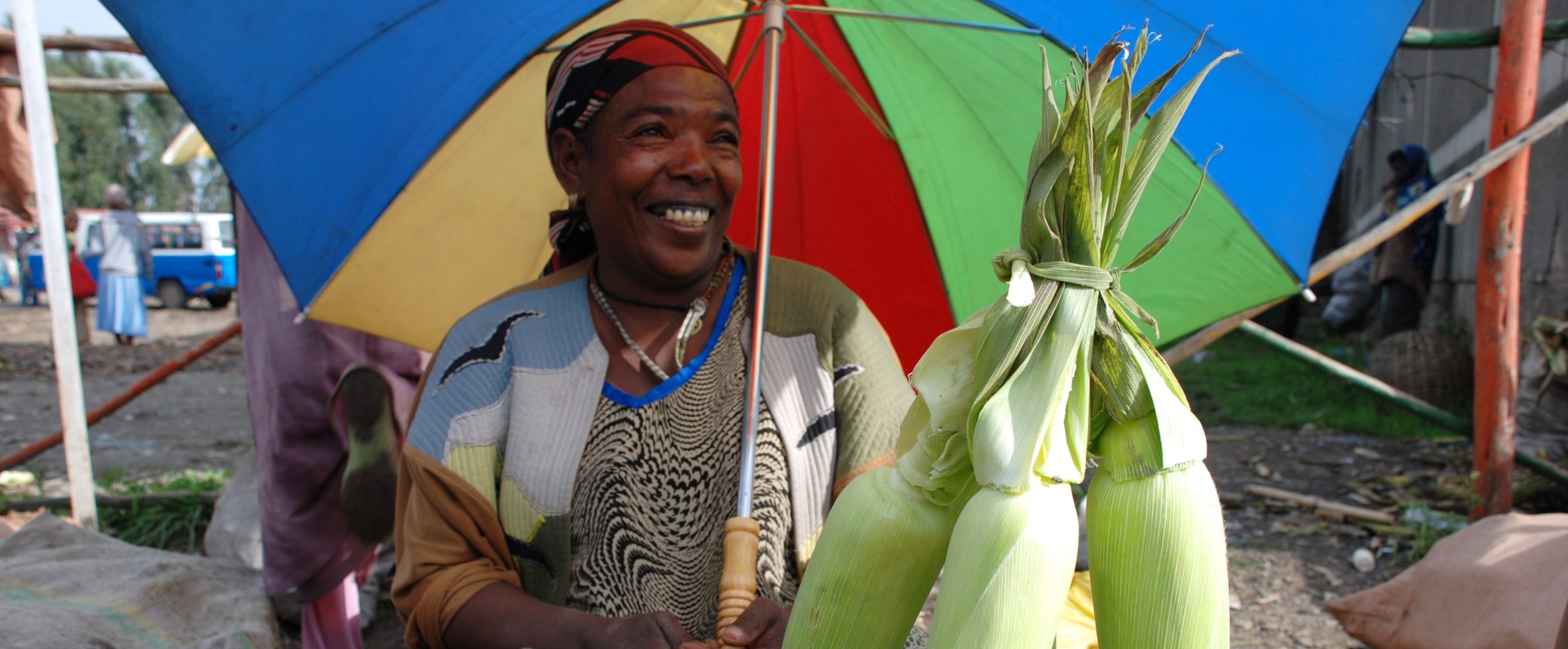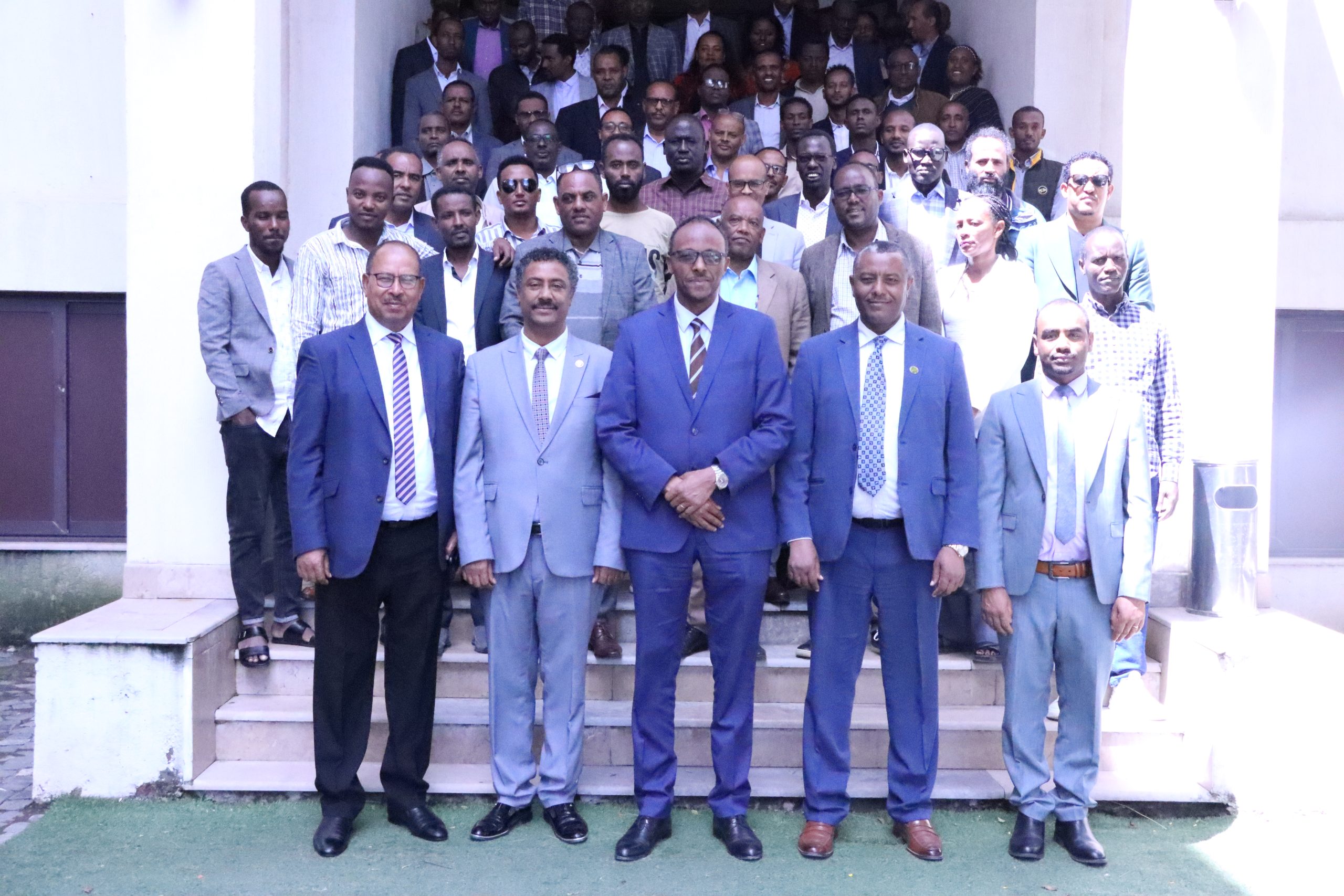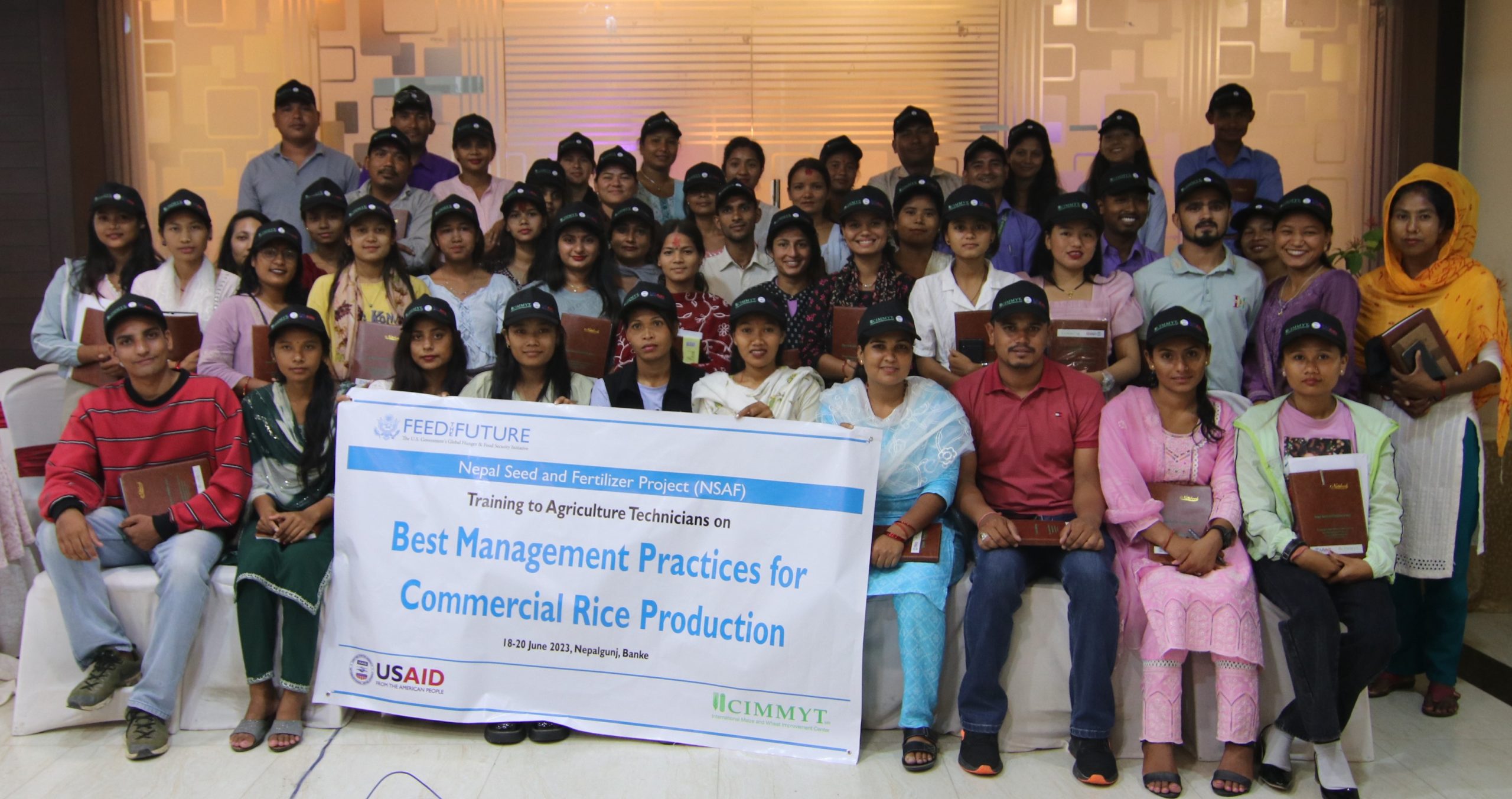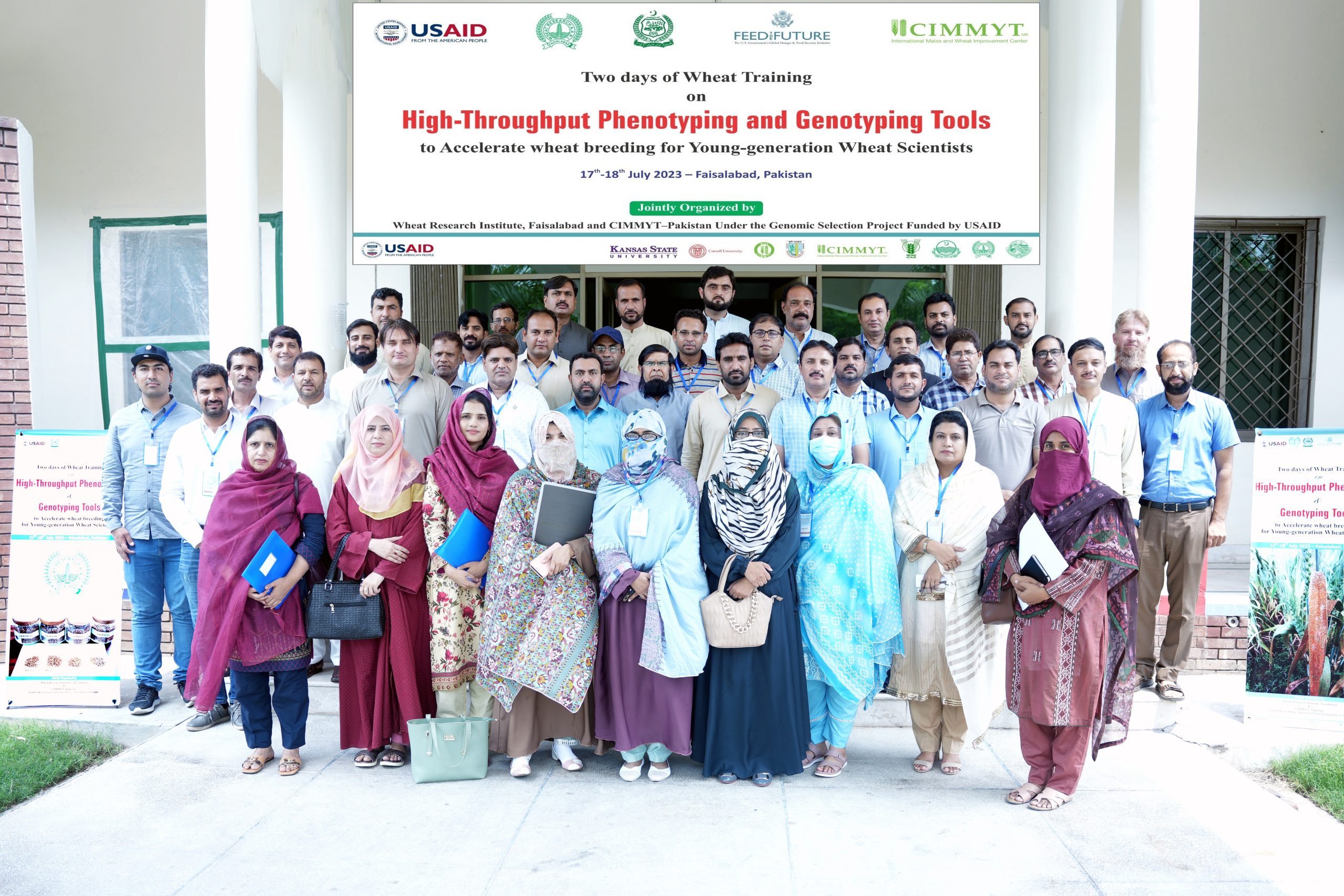Sustainable agrifood systems
Celebrating collaboration in science
 Innovations
Innovations
China-CIMMYT alumni event in Beijing recognizes the impact of partnership.
Nepal maize farmers share vision of a more profitable future with visiting agriculture officials
 Innovations
Innovations
Energized linkages with grain buyers through the Nepal Seed and Fertilizer Project have farmers planning to expand maize cropping.
Fall armyworm research, development and extension for horticulture
 Capacity development
Capacity development
Teams from Queensland DAF, Agriculture Victoria and others joined B.M. Prasanna, CIMMYT’s Maize Program Director, to discuss fall armyworm management and explore future collaboration on plant health.
Empowering local mechanics for sustainable machinery maintenance
 Capacity development
Capacity development
Training workshop for Zimbabwean mechanics guarantees efficient machinery service under USAID-funded Mechanization Activity.
Bringing Space to Place: Transforming African Agriculture with Better SOILS
 Capacity development
Capacity development
Source: IFDC (5 Nov 2023)
EU-funded project refurbishes Gwanda veterinary lab, boosting livestock disease control
 Environmental health and biodiversity
Environmental health and biodiversity
Source: CITE (3 Nov 2023)
CIMMYT collaborates to enhance disease control for livestock, assisting smallholder farmers.
Sustainable Intensification of Smallholder Farming Systems in Zambia (SIFAZ)
 Climate adaptation and mitigation
Climate adaptation and mitigation
The need to consider biological actors as an influence when studying market agencies
 Environmental health and biodiversity
Environmental health and biodiversity
New partnership announced to protect Gorongosa National Park in Mozambique by improving agricultural livelihoods and crop systems
 Environmental health and biodiversity
Environmental health and biodiversity
GRP and CIMMYT signed up cooperation framework at Borlaug Dialogue organized by the World Food Prize Foundation.
Researchers propose a unified, scalable framework to measure agricultural greenhouse gas emissions
 Capacity development
Capacity development
Source: Life Technology (30 Oct 2023)
AGREE, created by UC Davis and CIMMYT, helps analyze emissions from diverse agricultural activities.
In Ethiopia, regional and local representatives endorse national framework on climate services
 Capacity development
Capacity development
Ethiopian Meteorological Institute in partnership with CIMMYT organized a workshop to scale climate-smart agriculture and climate information services for the benefit of millions of small-scale farmers in Ethiopia.
Pakistan, China join hands to augment wheat production, enhance food security
 Innovations
Innovations
Source: Xinhua Net (25 Oct 2023)
For future wheat variety development, CIMMYT is interested in collaborating with the Pakistan-China laboratory.
Global Hunger Challenges Grow
 Nutrition, health and food security
Nutrition, health and food security
Source: Progressive Farmer (25 Oct 2023)
Bram Govaerts, CIMMYT director general, emphasized the global impact of Russia’s invasion of Ukraine on agriculture and the link between peace and food production.
Extension capacity-building leverages Nepal soil, seed and science for rice farming
 Capacity development
Capacity development
Soil fertility management and improved practices for rice production were emphasized with technicians who work directly with farmers to raise yields, income, and household-level food and nutrition security.
